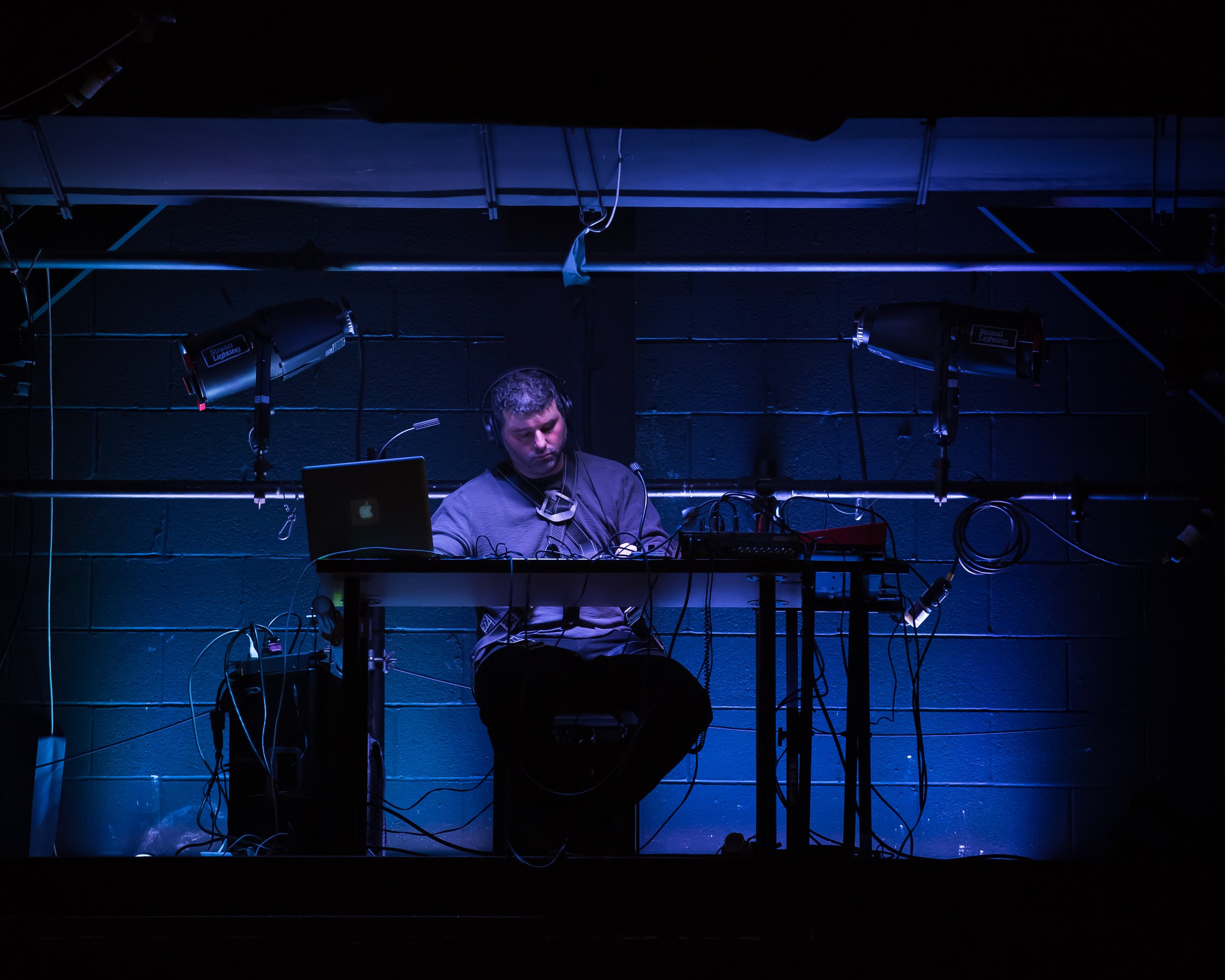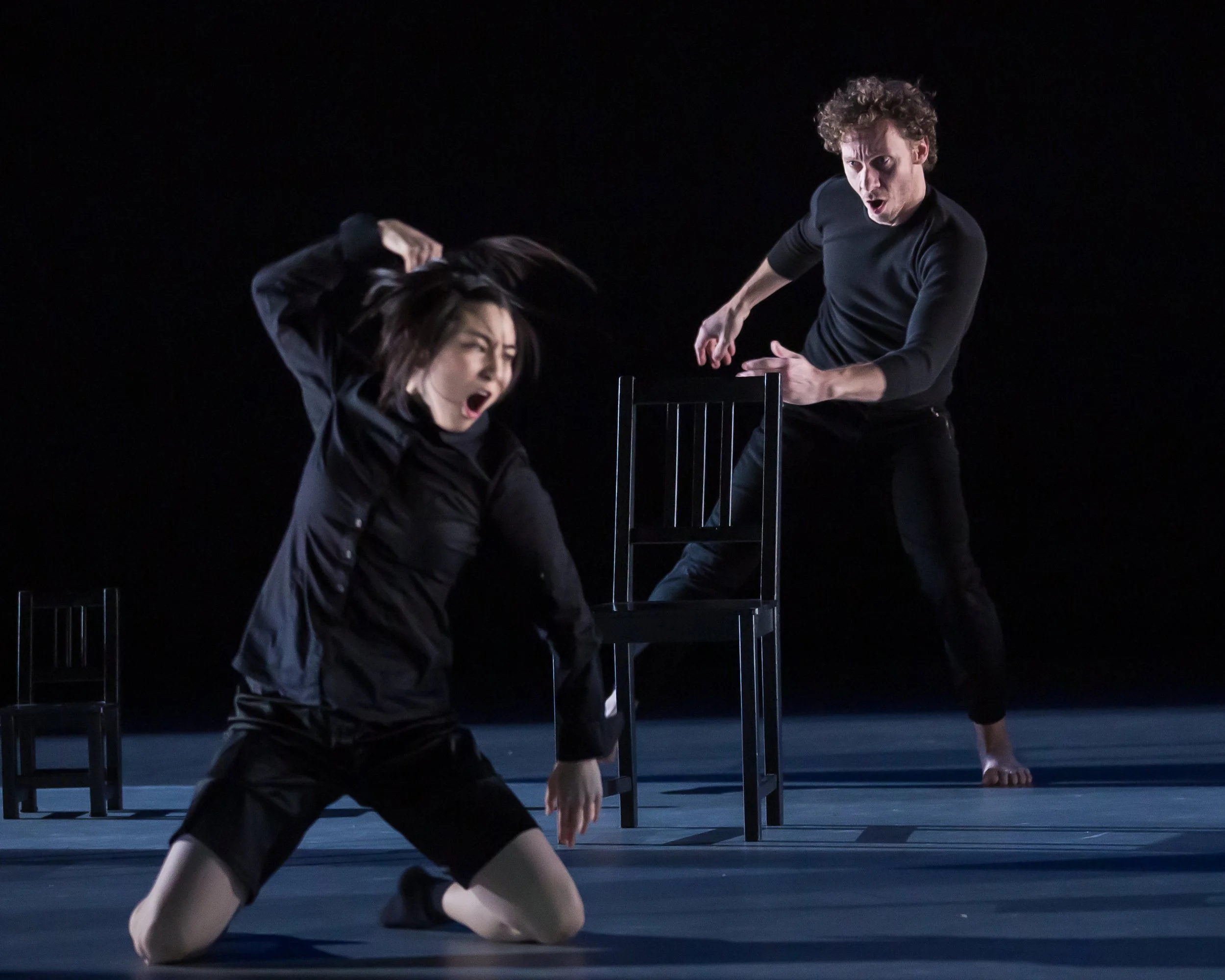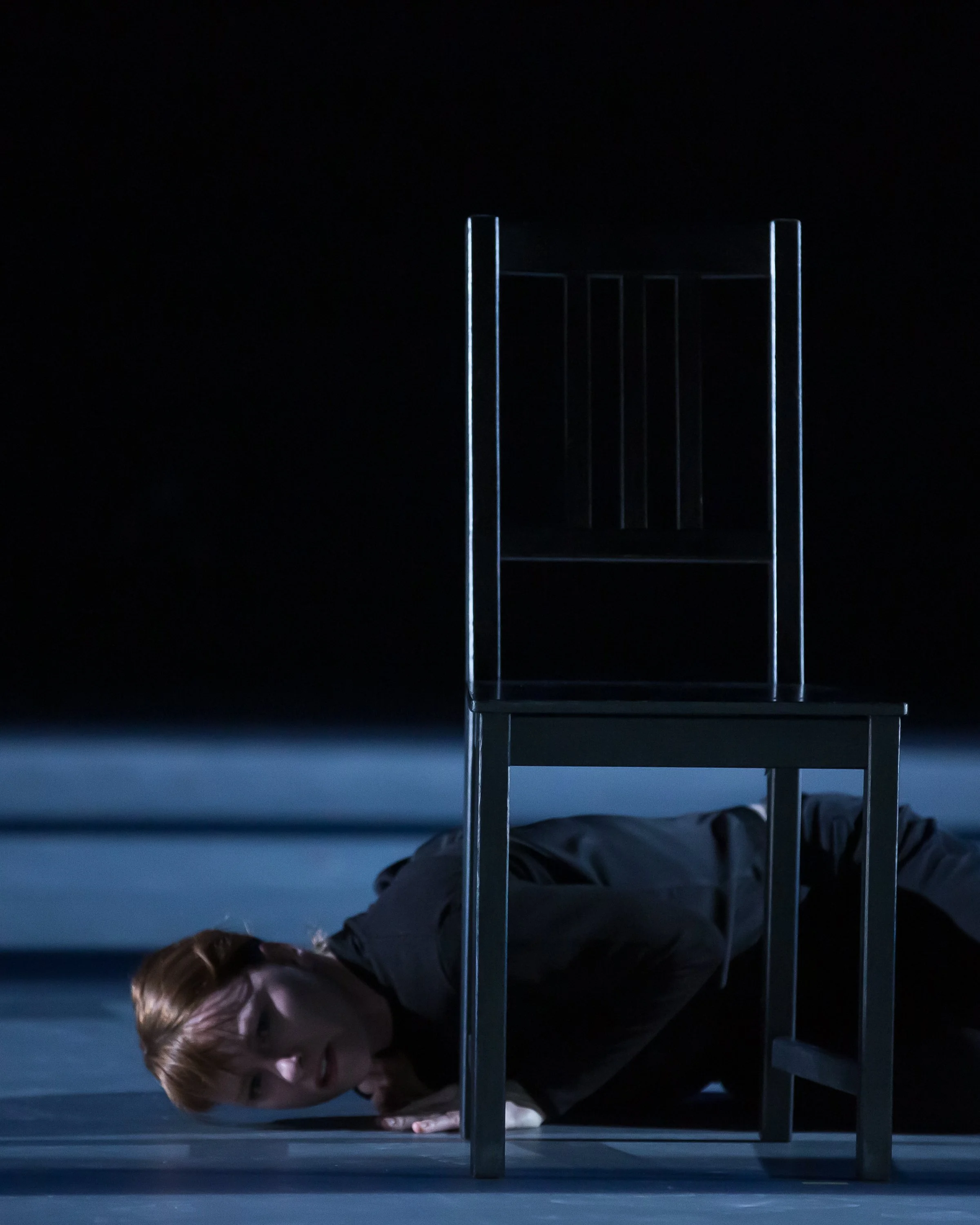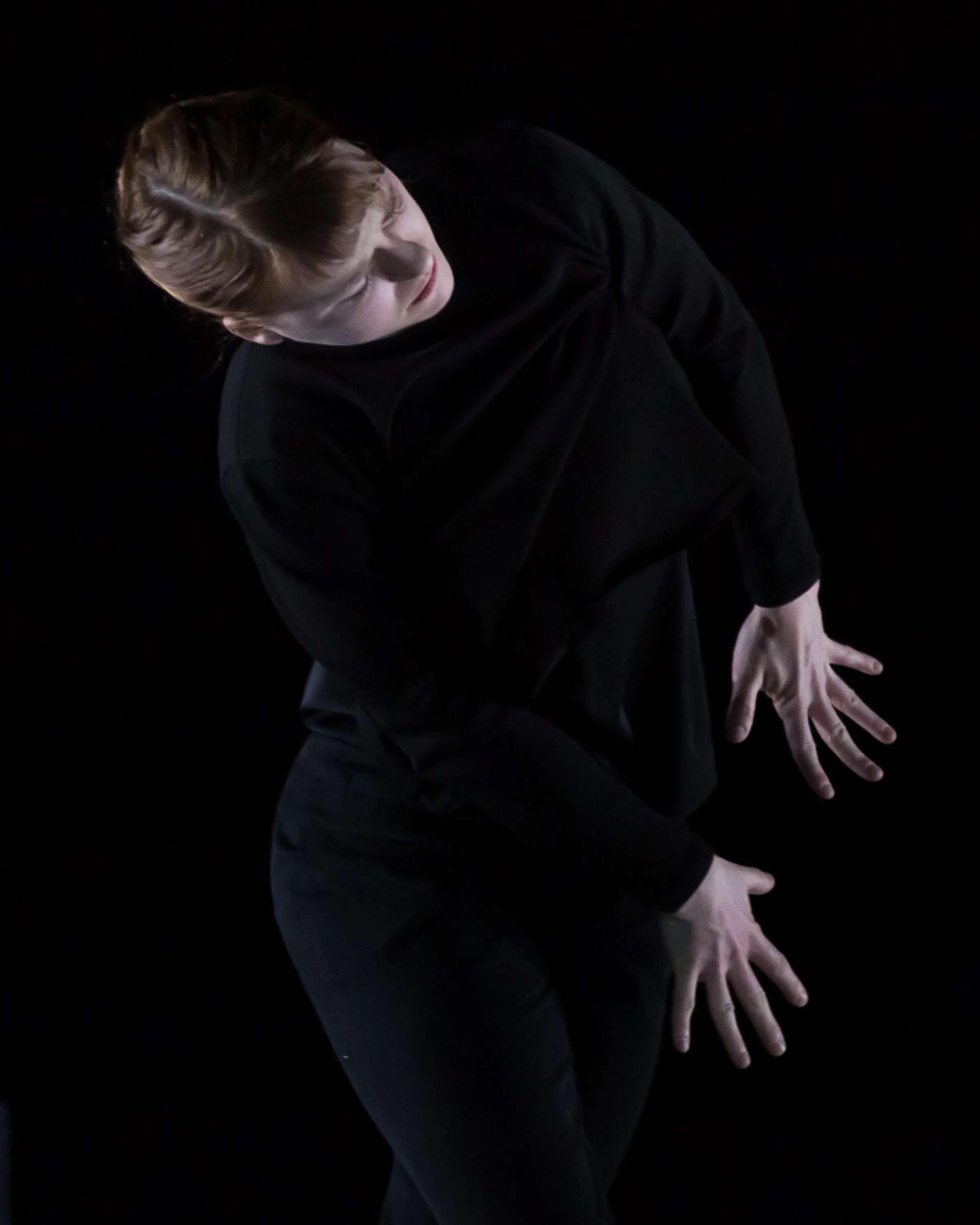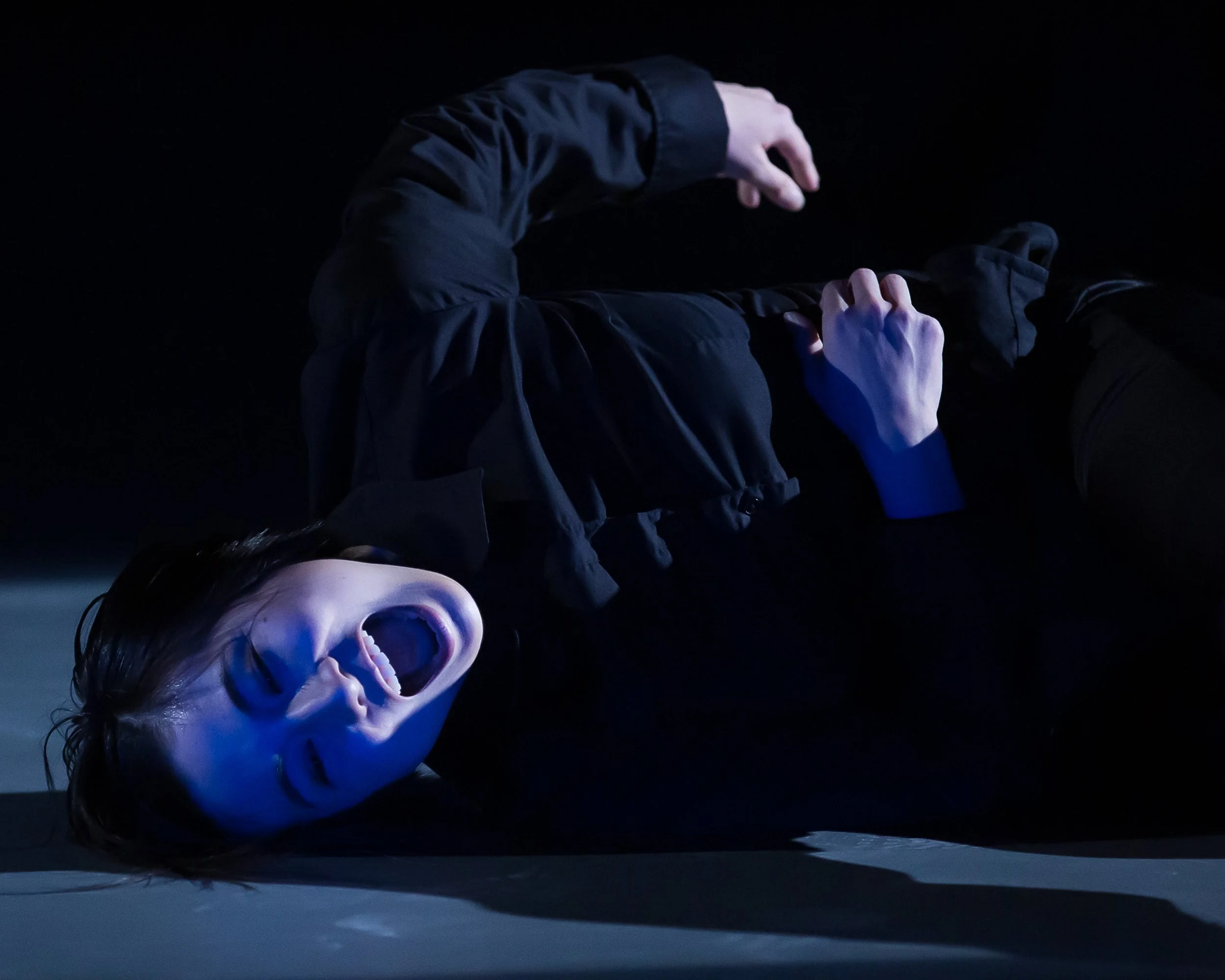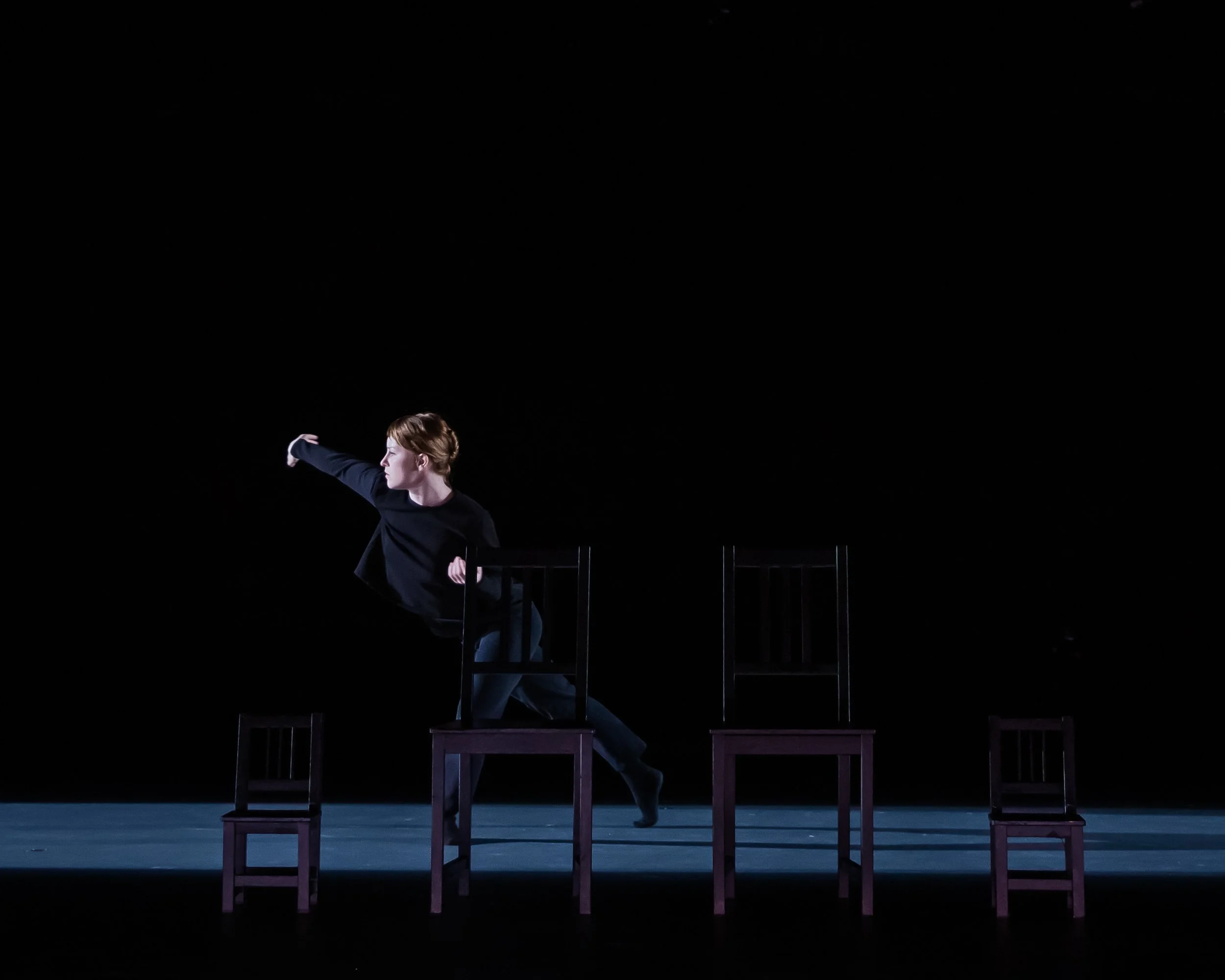Aleatoric Trio No. 1 (2016)
I remained fascinated by the richness of developing dances as part of the aleatoric series (in which I had the dancers call up remembered movements from past works and then explored their potency within a new choreographic framework), and during the research for locus plot I encountered the concept of “phase space” which provided a powerful and stimulating new model for working in this way.
In physics, “phase space” is a term used to describe a disruption of time and space in which the laws of dimensional continuity and evenly paced, sequential time no longer hold true. Phase space can be transformed like working bread dough by stretching, flattening, folding, rolling, punching, and shaping so that the original relationship between any two points in time and space shift in radical and unpredictable ways.
I think of memory as functioning along the same lines as phase space. Certainly, it is a realm that exists outside of the usual conventions of spatial boundaries and linear sequencing. Memory unravels, floats, dissolves, reverses, contracts, expands, and spirals. In my experience, memory has more in common with dreams, fantasy, poetry, music, literature, and painting, than with the chronological experience we expect it to capture. A memory can languish in the constant flux of reinterpretation or become a narrative so polished it takes on the shining luster of a brittle shell.
Working with Ric Brown, Sarah Fregeau, and Sahara Morimoto, I reconfigured the movement vocabulary they each brought forward as memories through the use of compositional structures, textures, energies, and themes that I pursued; by disrupting the space with a group of chairs (including two that were child sized) plundered from The Transparent Recital; by the integration of a demanding and far-ranging vocal score by Fides Krucker; and finally by situating musician John Kameel Farah on a ledge about 12 feet up on the back wall of the stage where he could look down to improvise an electronic score according to an open and spontaneous reading of his bird’s eye view of the performance.
Together, these contributions seeded a dreamscape unfolding within a shifting landscape of chairs, and revealing impulses, images, and oblique storylines that emerged from beneath the surface of the steps, amplified by voice, light and electronic sound. Reminiscing about this trio six years later, Sarah Fregeau said, “I loved that piece. All those chairs that were growled at and sung to.”
Aleatoric Trio No. 1 premiered as the opening work in a four-part program titled Phase Space, that also included Aleatoric Solo No. 1 for Sahara Morimoto, Aleatoric Duet No. 2 for Andrea Nann and Sean Ling, and the brand new Aleatoric Solo No. 2 for Kate Holden. - PB
credits
choreography and costume design:
Peggy Baker
improvised music:
John Kameel Farah
vocalography:
Fides Krucker
dancers:
Ric Brown
Sarah Fregeau
Sahara Morimoto
awards and nominations
Dora Mavor Moore Award for Outstanding Composition/Sound Design, Dance Division:
John Kameel Farah and Fides Krucker.
Dora nominations for Outstanding Production (Peggy Baker Dance Projects), Outstanding Lighting Design (Marc Parent), and Outstanding Performance (Kate Holden).
premiere
Toronto
January 22 - 31, 2016
Betty Oliphant Theatre
concert title: Phase Space
January 28, 2016
Richard Bradshaw Amphitheatre, Four Seasons Centre for the Performing Arts
COC Free Concert Series - reassembled
media links
See 2016 in the media and awards archive
photography
All photos by Jeremy Mimnagh unless otherwise noted.

